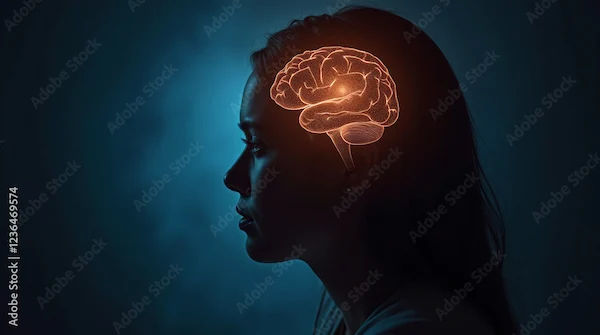Guide to Ignoring Mental Health Can Cost You Your Physical Health
Discover the hidden link between your mind and body. Learn how neglecting your mental health can directly lead to serious physical illnesses and why taking action is vital.


Introduction
We often treat our mental health and physical health as separate entities. You go to the doctor for a persistent cough but might dismiss weeks of feeling anxious or down as "just a rough patch." This compartmentalization is not just outdated; it's dangerous. The truth is, your mind and body are in constant, intimate communication. When you ignore your emotional and psychological well-being, you are not just risking your mood—you are putting your physical health on the line. The cost of neglecting mental health can manifest as very real, very serious physical illnesses, from heart disease to a compromised immune system. This article will explore the powerful biological links between your mental state and your body's functioning, detailing the specific physical consequences of chronic stress, anxiety, and depression. By understanding this connection, you can take proactive steps to protect your entire well-being.
The Invisible Link: Understanding the Mind-Body Connection
The idea that our thoughts and feelings can influence our physical state isn't just philosophical; it's a hardwired biological reality. This connection is governed by complex systems involving the brain, hormones, and nerves.
The Stress Response: Your Body's Alarm System
When you perceive a threat—whether it's a looming work deadline or a personal conflict—your body activates the "fight-or-flight" response. This is orchestrated by the sympathetic nervous system and the release of stress hormones, primarily cortisol and adrenaline. Your heart rate increases, muscles tense, and breath quickens. This is a brilliant, life-saving system for acute dangers. However, the problem begins when this alarm system is constantly triggered by the chronic stressors of modern life.
When the Alarm Doesn't Turn Off: Chronic Stress and Inflammation
When stress becomes persistent, your body remains in a state of high alert. Chronically elevated cortisol levels wreak havoc. One of the most significant effects is the promotion of chronic inflammation. While acute inflammation is a helpful immune response to injury, systemic, low-grade inflammation is a key contributor to nearly every major modern disease, including arthritis, diabetes, and cancer. This state of constant physiological turmoil is the primary pathway through which neglected mental health translates into physical health decline.
Consult Top Specialists
The Physical Toll of Neglected Mental Health
The consequences of a perpetually activated stress response are not vague; they target specific, critical systems in your body.
Your Heart Under Pressure: Cardiovascular Consequences
Chronic stress and conditions like depression and anxiety put immense strain on your cardiovascular system. Elevated cortisol leads to increased blood pressure and heart rate. Over time, this can damage artery walls, contribute to the buildup of plaque (atherosclerosis), and significantly raise the risk of heart attacks and strokes. Research consistently shows that individuals with chronic depression or anxiety have a much higher incidence of heart disease.
A Weakened Defense: The Immune System Connection
Your immune system is particularly vulnerable to the effects of chronic stress. Initially, stress can give the immune system a brief boost. But when stress hormones like cortisol remain high for extended periods, they begin to suppress the immune system. This makes you more susceptible to infections, from the common cold to more serious illnesses. It can also slow down wound healing and reduce the effectiveness of vaccines. This field of study, known as psychoneuroimmunology, provides robust evidence for the link between mental health and physical health via the immune response.
Gut Feelings Are Real: The Brain-Gut Axis
Have you ever felt "butterflies" in your stomach when nervous? Or had an upset stomach during a stressful time? This is due to the brain-gut axis, a bidirectional communication network between your brain and your digestive system. Chronic stress can alter gut motility (leading to Irritable Bowel Syndrome - IBS), increase intestinal permeability ("leaky gut"), and disrupt the balance of your gut microbiome. This is a clear example of how ignoring mental health can lead to debilitating physical symptoms like bloating, pain, and digestive distress.
Specific Conditions: From Anxiety to Physical Pain
While stress is a common thread, specific mental health conditions have distinct physical manifestations.
How Chronic Anxiety Manifests Physically?
Anxiety is not just feeling worried; it's a full-body experience. Physical symptoms of chronic anxiety can include:
• Muscle tension and pain: Constant bracing leads to headaches, back pain, and TMJ disorders.
• Cardiovascular issues: Heart palpitations, chest pain, and high blood pressure are common.
• Respiratory problems: Shortness of breath and a feeling of suffocation can occur.
• Gastrointestinal distress: Nausea, diarrhea, and IBS are highly comorbid with anxiety disorders.
The Heavy Weight of Depression on the Body
Depression is often characterized by profound fatigue, but its physical effects are far-reaching:
1. Unexplained aches and pains: Chronic pain conditions like fibromyalgia are closely linked to depression.
2. Significant changes in appetite and weight.
3. Sleep disturbances: Either insomnia or hypersomnia (sleeping too much).
4. Decreased libido.
5. A higher risk for developing cardiovascular disease.
Breaking the Cycle: Strategies for Integrated Health
The good news is that by caring for your mind, you directly care for your body. Here are evidence-based strategies to support both.
Movement as Medicine: Exercise for Mind and Body
Regular physical activity is a powerful tool. It reduces stress hormones, stimulates the production of endorphins (natural mood elevators), and helps regulate sleep. Aim for at least 30 minutes of moderate exercise most days. If you struggle with motivation due to low mood, consulting a doctor online with Apollo24|7 can help you create a safe and manageable fitness plan.
The Power of Rest: Prioritizing Sleep Hygiene
Sleep is when your body and brain repair themselves. Poor sleep exacerbates stress, anxiety, and depression. Establish a consistent sleep schedule, create a relaxing bedtime routine, and make your bedroom a screen-free sanctuary.
Mindfulness and Meditation: Calming the Nervous System
Practices like meditation, deep breathing, and yoga activate the parasympathetic nervous system—the "rest-and-digest" counterpart to the stress response. This directly lowers cortisol, reduces blood pressure, and promotes a state of calm.
When to Seek Professional Help?
It's crucial to recognize when self-help strategies aren't enough. If symptoms of stress, anxiety, or depression persist beyond two weeks and interfere with your daily life, work, or relationships, it's time to seek professional support. A therapist or counselor can provide effective strategies like CBT (Cognitive Behavioral Therapy), and if your condition does not improve after trying these methods, booking a physical visit to a doctor with Apollo24|7 is recommended to rule out any underlying physical causes. Sometimes, addressing physical health issues, like hormonal imbalances or vitamin deficiencies, can also improve mental well-being. Apollo24|7 offers convenient home collection for tests like vitamin D or HbA1c, which can provide valuable insights.
Conclusion
The science is clear: the old dichotomy between mind and body is false. You cannot have true physical health without mental health, and vice versa. Ignoring emotional pain, chronic stress, or symptoms of anxiety and depression is akin to ignoring chest pain or a persistent fever—it allows a manageable condition to potentially evolve into a serious one. By adopting a holistic view of your health, you empower yourself to make choices that nourish every part of you. Start today by acknowledging the connection and taking one small step, whether it's a walk in nature, a few minutes of deep breathing, or reaching out for support. Your whole self will thank you.Consult Top Specialists
Consult Top Specialists

Dr. Syed Ismail Ali
General Practitioner
7 Years • MBBS
Hyderabad
Apollo 24|7 Clinic, Hyderabad

Dr Syed Mateen Pasha
General Physician
2 Years • MBBS
Bengaluru
PRESTIGE SHANTHINIKETAN - SOCIETY CLINIC, Bengaluru

Dr. Anand Ravi
General Physician
2 Years • MBBS
Bengaluru
PRESTIGE SHANTHINIKETAN - SOCIETY CLINIC, Bengaluru

Dr. Vivek D
General Physician
4 Years • MBBS
Bengaluru
PRESTIGE SHANTHINIKETAN - SOCIETY CLINIC, Bengaluru

Dr. Harshendra Jaiswal
General Physician/ Internal Medicine Specialist
12 Years • MBBS , MD (General medicine)
Kolkata
108 DHANA DHANVANTARI Clinic, Kolkata
(25+ Patients)
Consult Top Specialists

Dr. Syed Ismail Ali
General Practitioner
7 Years • MBBS
Hyderabad
Apollo 24|7 Clinic, Hyderabad

Dr Syed Mateen Pasha
General Physician
2 Years • MBBS
Bengaluru
PRESTIGE SHANTHINIKETAN - SOCIETY CLINIC, Bengaluru

Dr. Anand Ravi
General Physician
2 Years • MBBS
Bengaluru
PRESTIGE SHANTHINIKETAN - SOCIETY CLINIC, Bengaluru

Dr. Vivek D
General Physician
4 Years • MBBS
Bengaluru
PRESTIGE SHANTHINIKETAN - SOCIETY CLINIC, Bengaluru

Dr. Harshendra Jaiswal
General Physician/ Internal Medicine Specialist
12 Years • MBBS , MD (General medicine)
Kolkata
108 DHANA DHANVANTARI Clinic, Kolkata
(25+ Patients)
More articles from Mental Health
Frequently Asked Questions
1. What are some common physical signs that my mental health is suffering?
Common signs include persistent headaches, digestive issues (like stomach pain or IBS), significant changes in appetite or weight, unexplained aches and pains, constant fatigue despite adequate sleep, and a weakened immune system (getting sick more often).
2. Can improving my physical health actually improve my mental health?
Absolutely. Regular exercise releases endorphins, which improve mood. A balanced diet nourishes the brain, and quality sleep is essential for emotional regulation. Taking care of your body directly supports your mind, creating a positive feedback loop.
3. How long does it take for stress to cause physical health problems?
There's no set timeline, as it depends on genetics, overall health, and the intensity of the stress. However, chronic stress that persists for months or years significantly increases the risk of developing serious physical conditions like hypertension and heart disease.
4. I feel physical pain, but doctors can't find a cause. Could it be psychosomatic?
'Psychosomatic' means the mind (psyche) is affecting the body (soma). The pain you feel is very real, even if its origin is linked to stress, anxiety, or depression. Conditions like tension headaches and fibromyalgia are well-documented examples of this mind-body connection.
5. What is the first step I should take if I think my mental health is affecting me physically?
Start by speaking with your primary care physician. They can help rule out other medical conditions. You can also consult a doctor online with Apollo24|7 for an initial assessment. Being open about both your emotional and physical symptoms is key to getting the right help.




